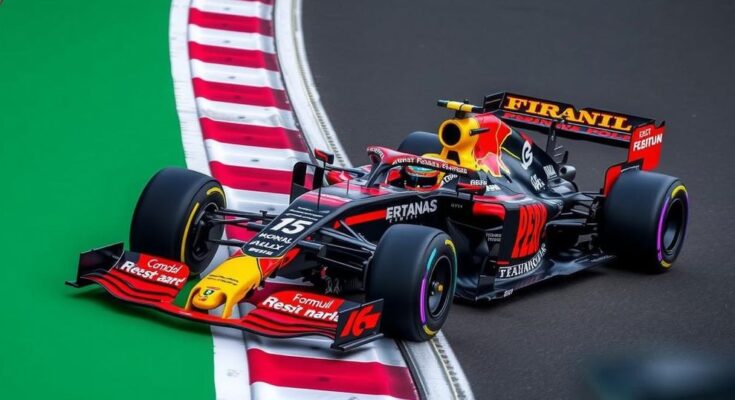The Brazilian Grand Prix has showcased the issues surrounding Formula 1’s free tyre change red flag rules, which have repeatedly placed drivers at a disadvantage while fostering unsafe racing conditions. As drivers complain about the unpredictability and unfairness of these rules, calls for reform have intensified. Prominent figures in the sport have acknowledged both the competitive and safety-related ramifications of the current regulations, underlining the urgent need for reassessment.
The recent Brazilian Grand Prix has once again illuminated the controversies surrounding the implementation of free tyre changes during red flags in Formula 1. This longstanding rule has triggered frustration among drivers, especially those caught at a disadvantage when the circumstances shift unexpectedly. In Brazil, drivers such as George Russell and Lando Norris faced negative outcomes after attempting to adapt to changing weather conditions, while others benefitted from a rule that allowed them to change their tyres without penalty due to a red flag incident. This unpredictability has previously been evident, as showcased during the Monaco Grand Prix, where the timing of red flags allowed specific drivers to benefit disproportionately from their decisions. Drivers like Norris have repeatedly expressed concerns over the fairness of the rules, suggesting the need for a more structured approach, such as enforcing mandatory pit stops with a requirement to utilize multiple tyre types. Furthermore, the recent race has raised pertinent safety concerns. It highlighted a tendency among drivers to remain on worn tyres in hazardous conditions, motivated by the opportunity to pit without consequence following a red flag. This scenario jeopardizes not only their performance but also their safety, as drivers struggle to maintain control of their vehicles in treacherous conditions. Prominent figures in the sport, including race winner Max Verstappen, acknowledged the precariousness of racing under such conditions, indicating that even experienced drivers are driven to push the limits in search of competitive advantage. Team principals have also noted the serious risks associated with waiting for a red flag rather than making a timely decision to pit under deteriorating circumstances. Consequently, while the red flag rules serve a critical safety function, the inconsistencies and competitive implications they generate necessitate a thorough re-evaluation by the governing bodies of Formula 1. Such reforms could ensure that driver safety remains paramount while fostering a competitive environment grounded in fairness.
The conversation surrounding Formula 1’s red flag regulations, particularly regarding free tyre changes, has gained momentum as it impacts race outcomes in unexpectedly profound ways. The rules, designed primarily for safety, allow teams to change tyres after a red flag incident, creating a strategic dilemma for drivers when faced with varying track conditions. Numerous discussions have circulated within the driver community regarding the equitable application of these rules, reflecting an ongoing struggle to balance competitive integrity with safety considerations during races, especially in wet conditions.
In light of the latest Brazilian Grand Prix, the precarious nature of Formula 1’s free tyre change rule during red flags has come under scrutiny. This situation not only disrupts competitive fairness for drivers but also raises critical safety concerns. With compelling arguments presented by multiple stakeholders in the sport, it is imperative for Formula 1 to revisit the existing regulations to promote a safer and more equitable racing environment, thereby enhancing the overall integrity and enjoyment of the sport.
Original Source: www.autosport.com




